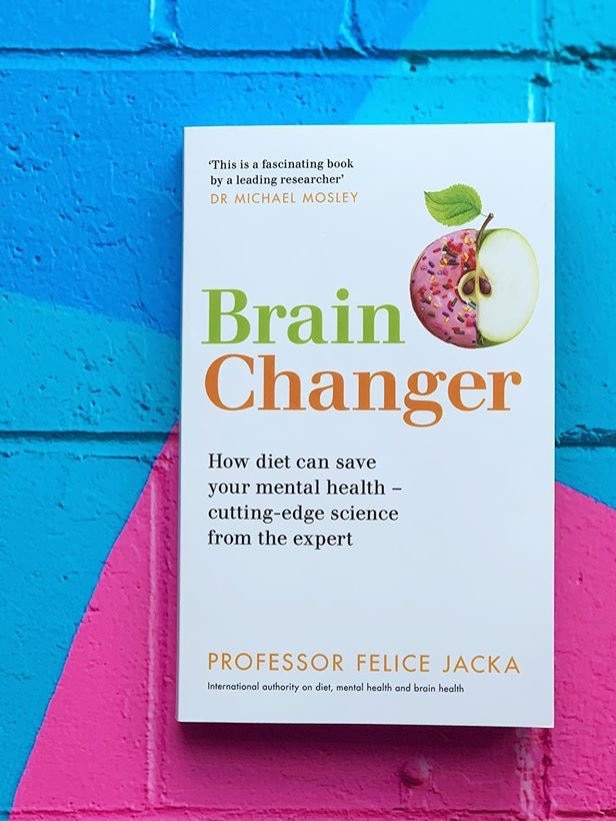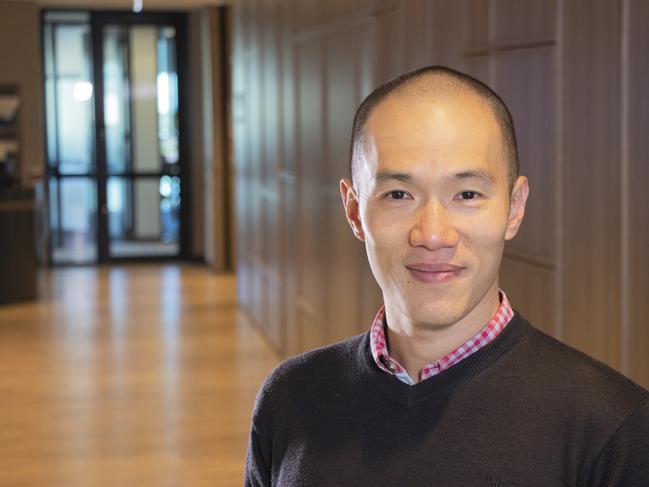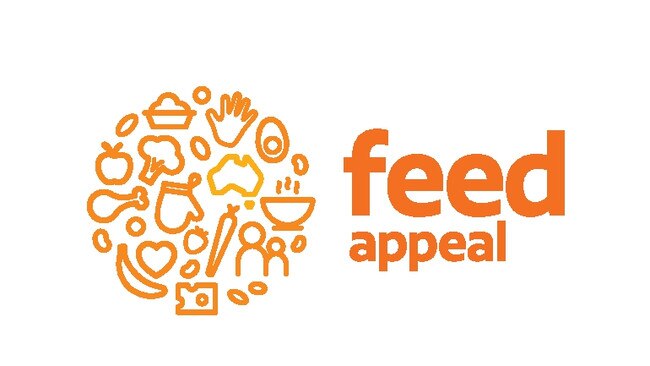Fresh produce prescribed in hospital pilot as alternative to drugs
Experts say Australia’s spiralling rates of mental and chronic illness demand a food policy overhaul as a hospital pilot prescribes fresh food ‘farmacy’.

SmartDaily
Don't miss out on the headlines from SmartDaily. Followed categories will be added to My News.
The war on unhealthy food has stepped up, with medical and nutritional experts fighting for sweeping changes to Australian food policy at every level of government.
The message is that fresh produce should be affordable and available to all while junk and highly processed foods should not be the cheapest and easiest option.
Medically-prescribed fruit and vegetables in a patient’s program of care across a range of illnesses is being tested in a pilot.
But there’s much more to do, said global leader in nutritional psychiatry Professor Felice Jacka OAM, director of Deakin University’s Food and Mood Centre in the faculty of health and president of the International Society for Nutritional Psychiatry Research (ISNPR).
Appearing at the Vogue Codes Summit on June 18, the author of Brain Changer did not mince words.

A FALSE ECONOMY
“All politicians care about is getting elected (and) re-elected. And that is just – I think – immoral. It is a huge failing in the way our politics work,” Prof Jacka said. “The cost to business just in Australia is billions and billions and billions every year, let alone the cost to the health purse.”
Prof Jacka said fast food outlets should be subject to tighter planning laws and ultra-processed foods should be heavily taxed with restricted advertising.
“Unhealthy foods are the cheapest, most ubiquitous, heavily marketed, socially acceptable and designed to be very difficult to resist,” she said. “My life’s dream is to help transform the food system and environment into something that … is actually working in the best interests of individuals and families.”
What we eat is intrinsically linked to our mental and brain health, particularly things such as depression and anxiety, Prof Jacka said.
“Poor diet is a risk factor for these disorders … and we know too that if you change your diet that can have a significant impact on improving those mental health outcomes. It’s recently been recognised in the Productivity Commission’s Mental Health (Inquiry) and in the clinical guidelines for treatment from the Royal Australian and New Zealand College of Psychiatrists. This is a very large body of evidence that is well recognised and endorsed by official bodies.”
Despite such evidence, there is a long way to go.
GROWING PAINS
The Hunger Report 2020 found that one in five Australian children does not eat breakfast and will experience food insecurity in 2021. Add to that highly processed children’s breakfasts with limited or no nutritional value and a significant number start each school day compromised.
“Extensive research now shows that the quality of people’s diets is linked to the hippocampus, the region of the brain that affords learning and memory,” Prof Jacka said.
“You cannot do well at school if you don’t have the nutrition that supports that part of the brain.
“With poor diet the leading cause of global death and illness, and mental disorders accounting for the leading global cause of disability, why would you not be investing in policies and programs … to avert the long-term issues that relate to both?”
Approaching and managing chronic diseases by prescribing healthy foods “could be a game changer for many doctors and patients”, said Dr Jason Wu, program head of Nutrition Science at The George Institute and lead researcher of a ‘Food Farmacy’ pilot study at Royal Prince Alfred (RPA) Hospital in Sydney, involving up to 50 food insecure patients with type 2 diabetes. Patients are prescribed boxes including healthful fruits, vegetables, nuts and more weekly over three months.

FOOD AS MEDICINE
“It’ll offer an important alternative to drugs (and) lower structural barriers (like) cost and accessibility, faced by many patients who would like to eat healthier,” Dr Wu said. “These types of interventions are obviously particularly important and likely beneficial to individuals who are food insecure.”
Dr Wu said emerging evidence from countries like the US suggests that produce prescription programs are highly cost-effective and help patients reduce their medication use and overall healthcare dependencies.
“It’s a paradigm shift – our healthcare system can and should integrate healthy foods as part of its toolkit, given everything we know about the essential role of healthy foods for optimal health,” he said.

Marcus Godinho, CEO of food rescue charity FareShare, said it can be much harder for those doing it tough to find regular access to healthy food.
“Prescribing free, nutritious meals to those in need to prevent and treat health issues should be prioritised,” he said. “More funding and research is needed around the diets of vulnerable people and how we can provide nutritious food relief, not just whatever is in surplus.”
He said access to good food should be part of a holistic health solution.
“Poor health is often a combination of medical and non-medical determinants and addressing these together would bring long-lasting improvements.
“Healthy food feeds the body and soul, so our chefs and volunteers ensure every delicious meal is packed with protein and vegetables.”

TRY THESE HEALTHY HABITS TODAY
Every Australian can be the policy maker in their own home by taking three simple steps to improve gut-to-brain health, said Professor Felice Jacka:
- Increase the number and the diversity of the plant foods you eat
- Reduce your intake of ultra-processed foods.
- Introduce some fermented foods into your diet, even if it’s just an occasional kombucha or kefir (fermented milk with the consistency of a yoghurt drink)
DONATE A HEALTHY MEAL TODAY
The annual Feed Appeal partnership between FareShare and News Corp Australia raises funds to provide grants to food relief charities feeding people in need while supporting FareShare’s free, nutritious meal supply to charities on the frontline of food insecurity across Australia.
To donate, visit feedappeal.org.au or round up your grocery bill at your local Woolworths store before June 29.

YOUR HEALTH IS ALWAYS IN STYLE
Vogue Australia presents the Vogue Codes Summit at Carriageworks, Sydney on Friday June 18 2021. Hear from international and Australian speakers driving change in their industry, including Professor Felice Jacka OAM. Visit vogue.com.au/vogue-codes
Originally published as Fresh produce prescribed in hospital pilot as alternative to drugs



